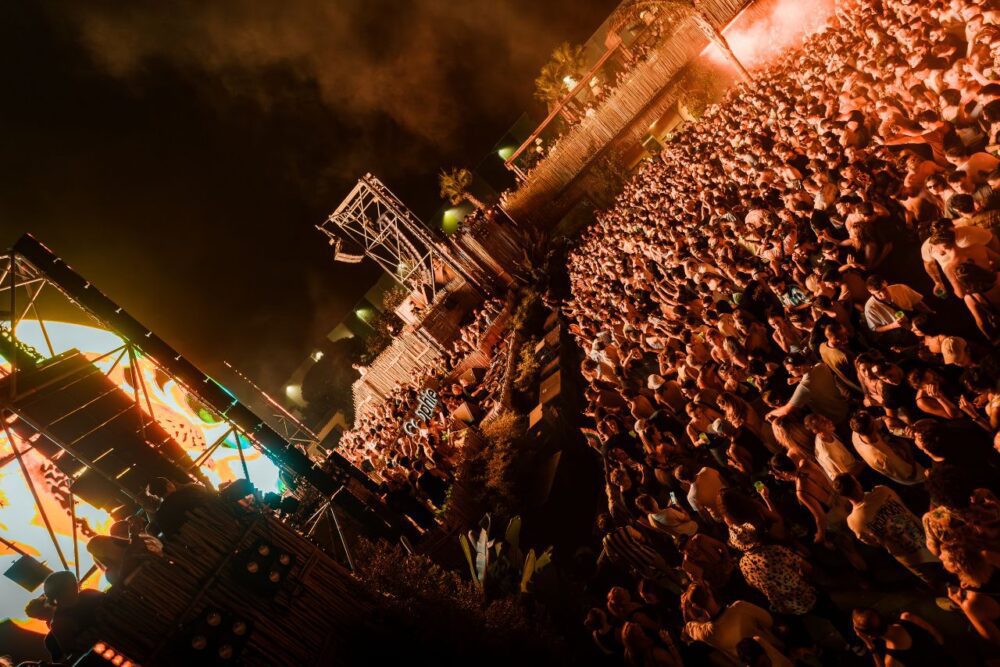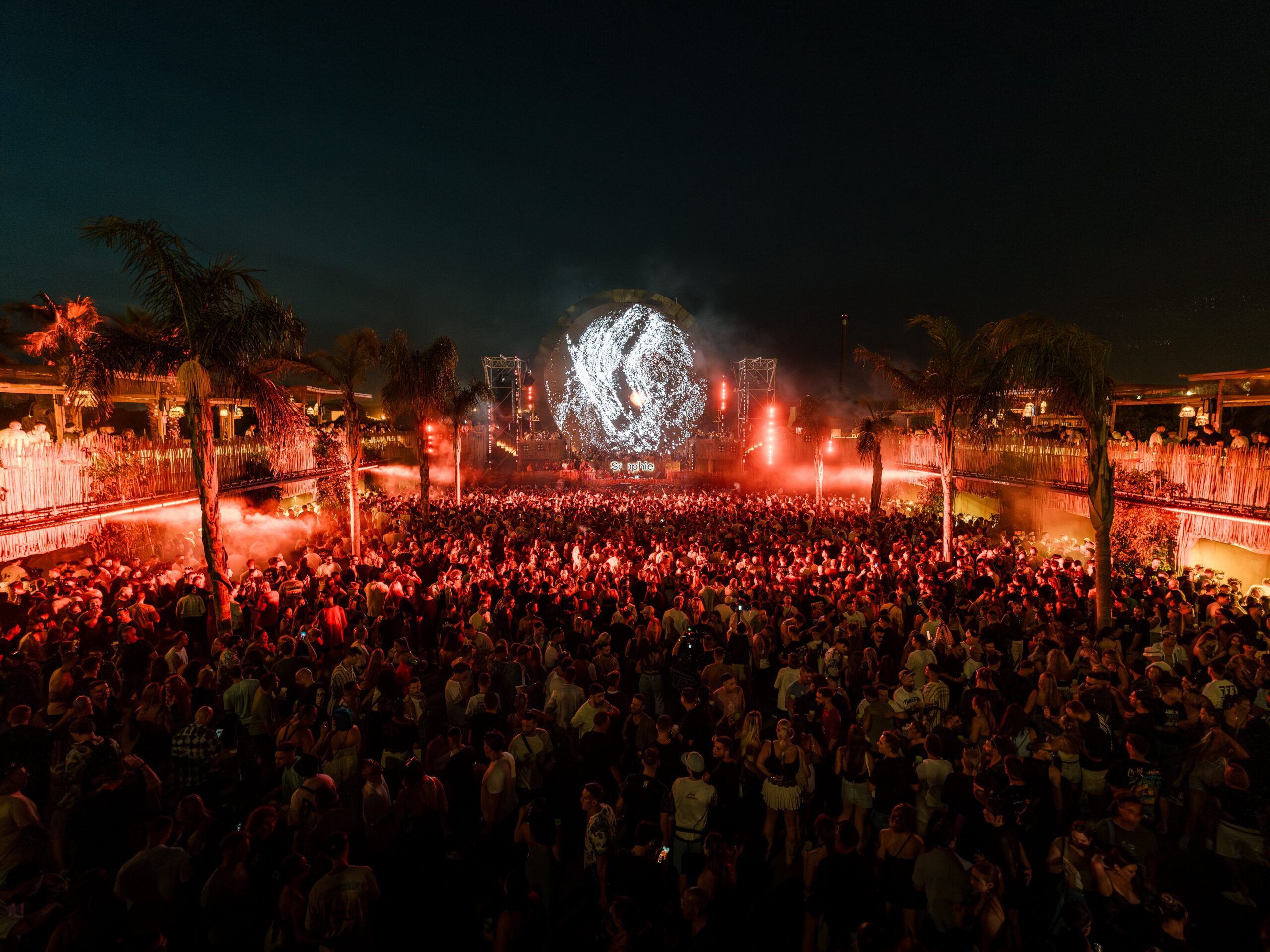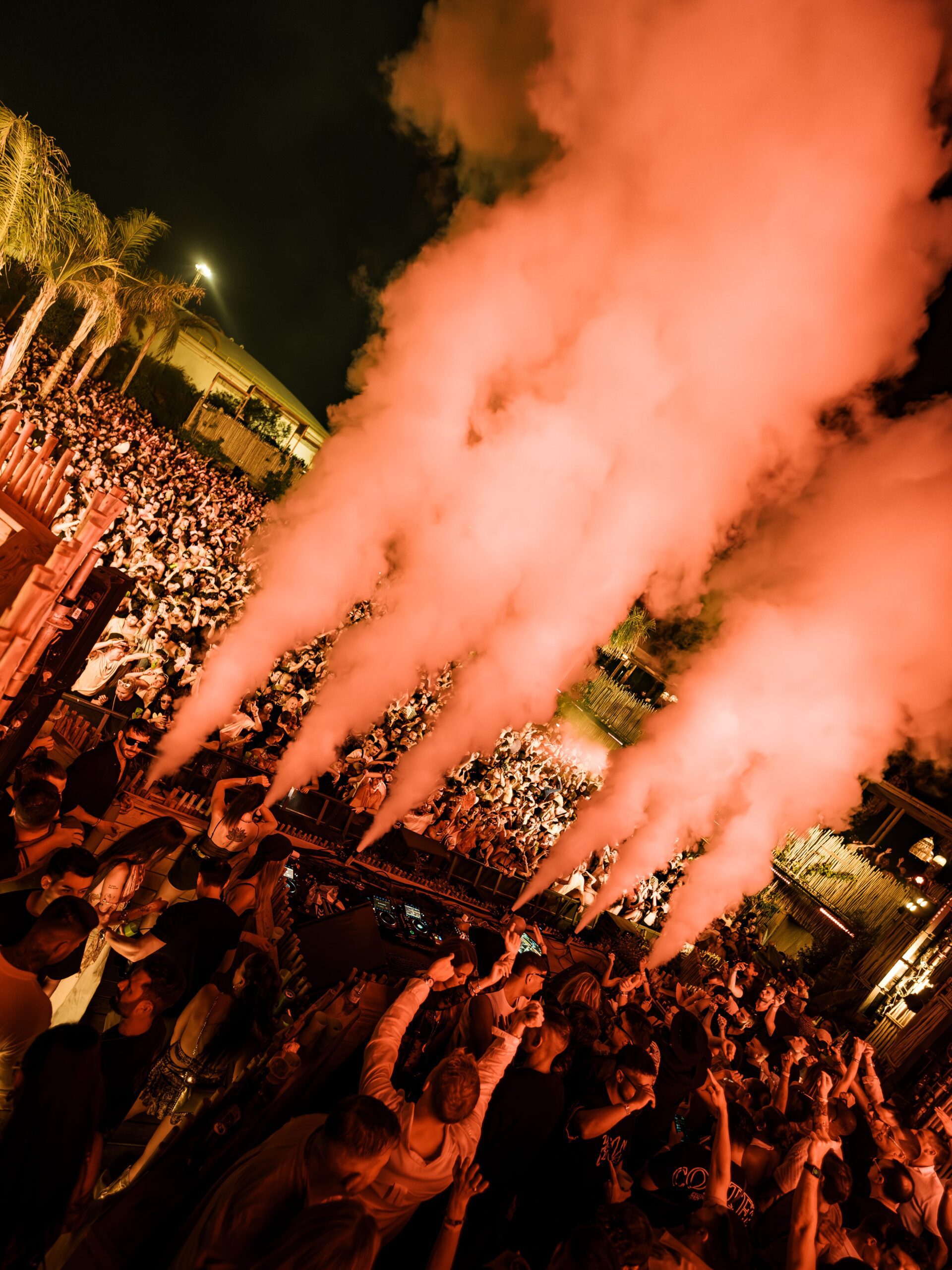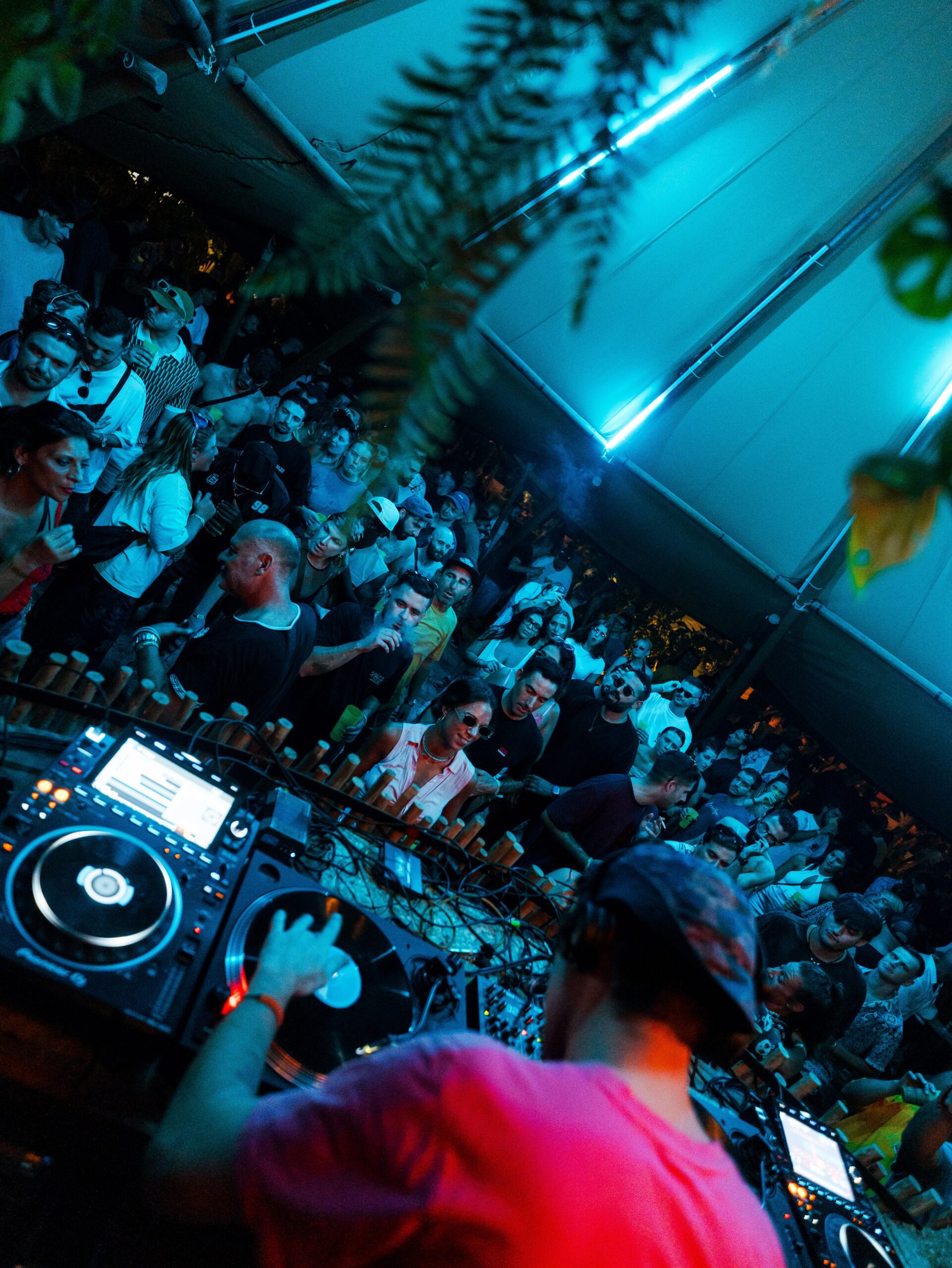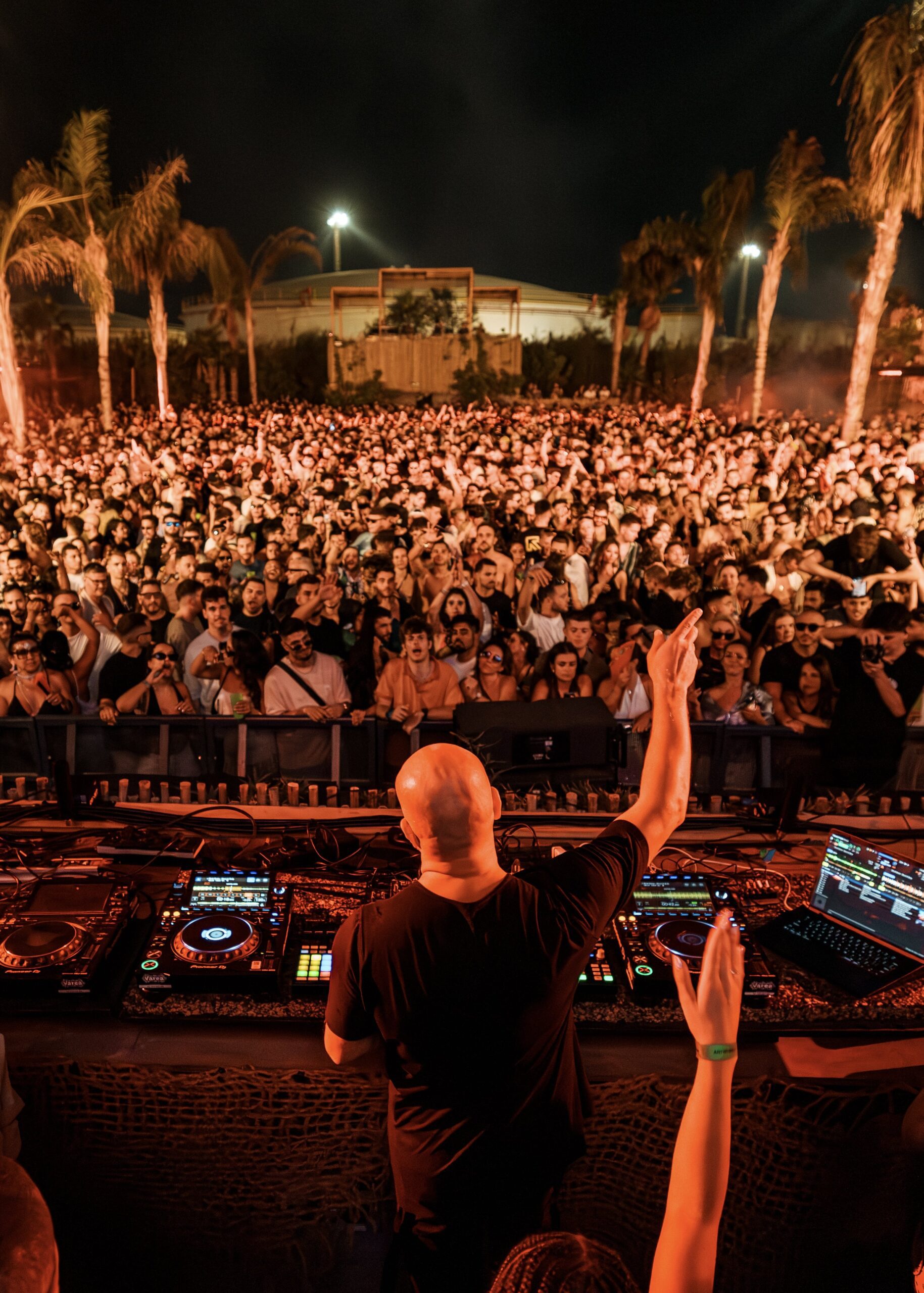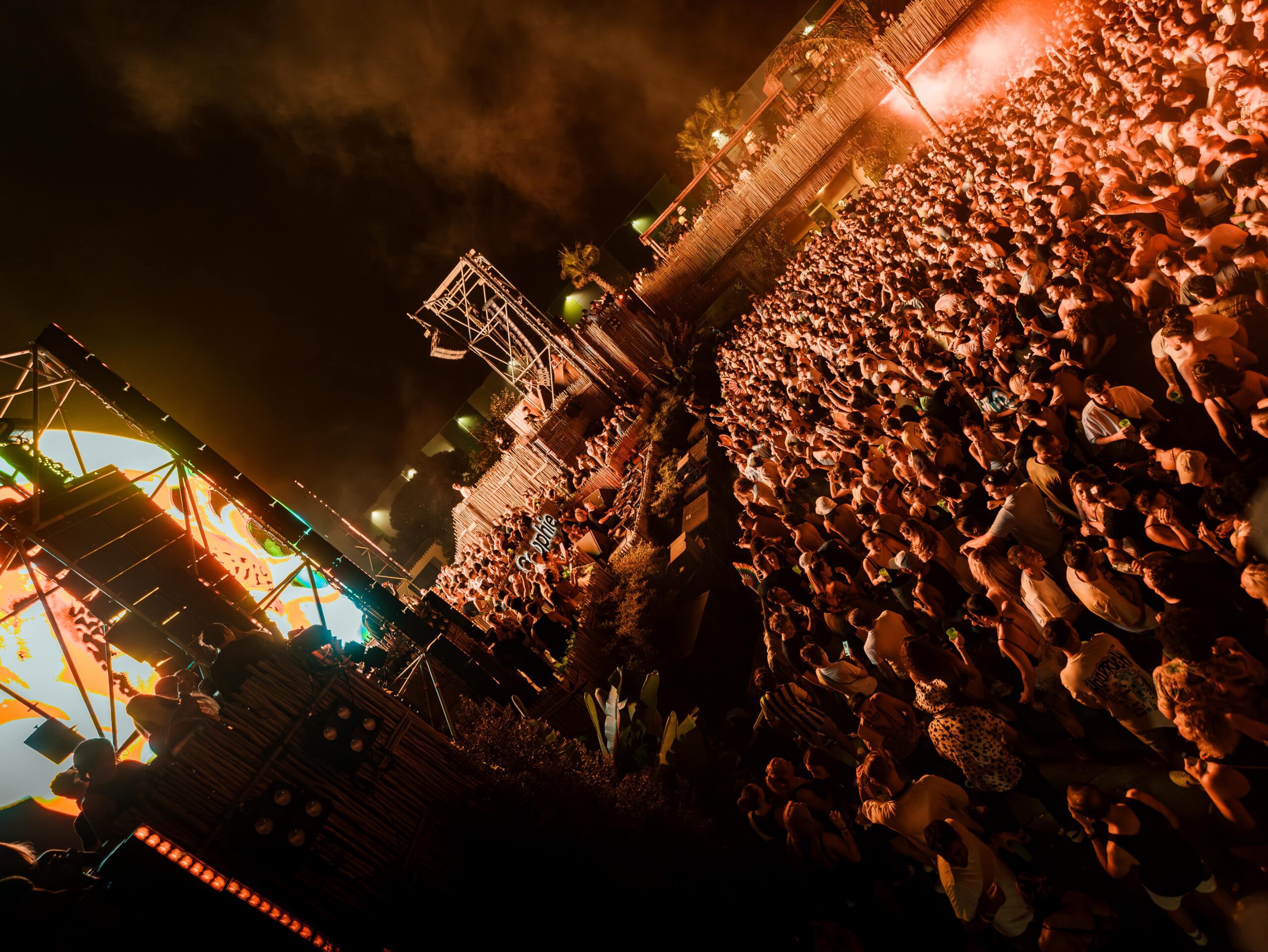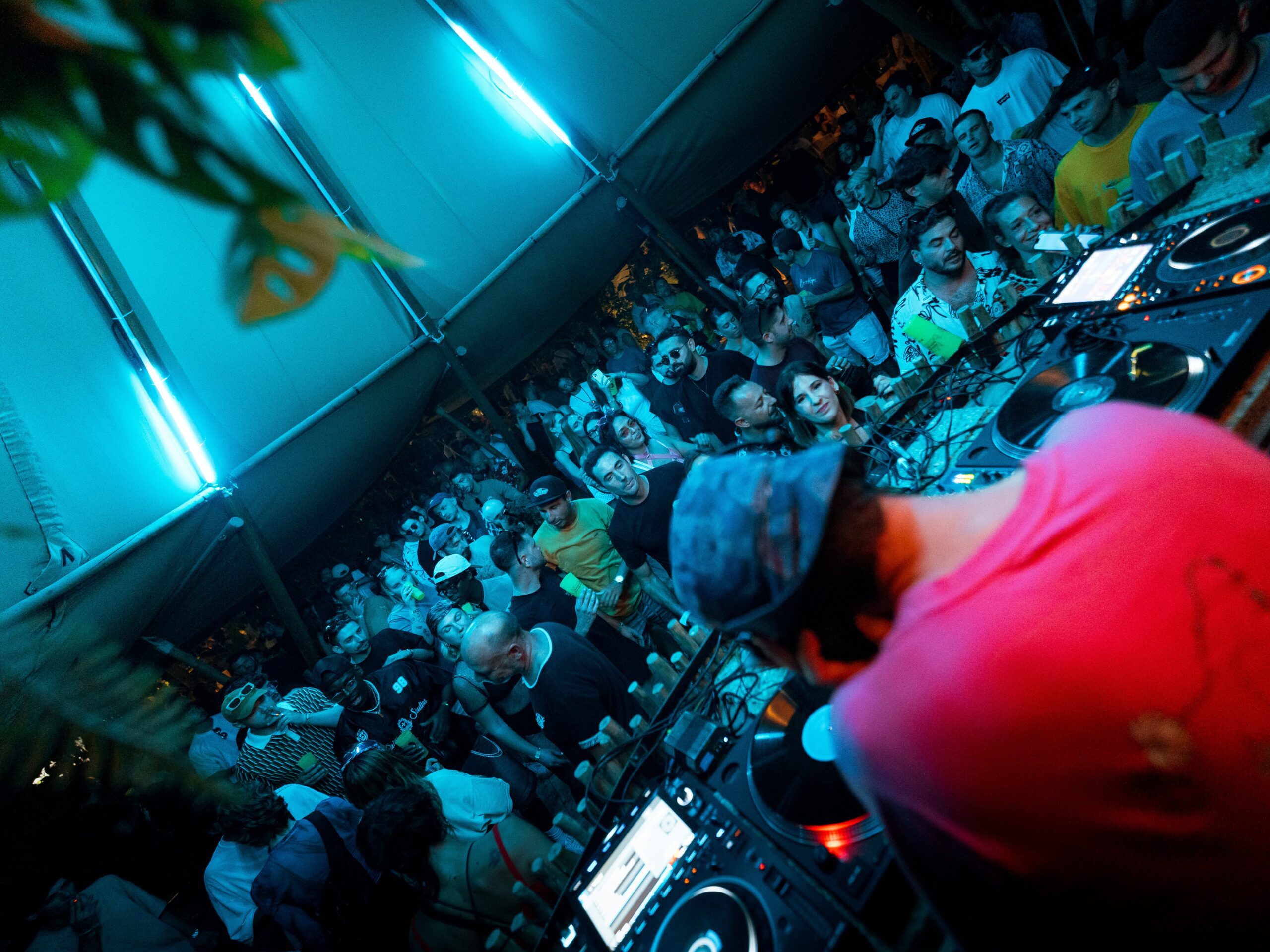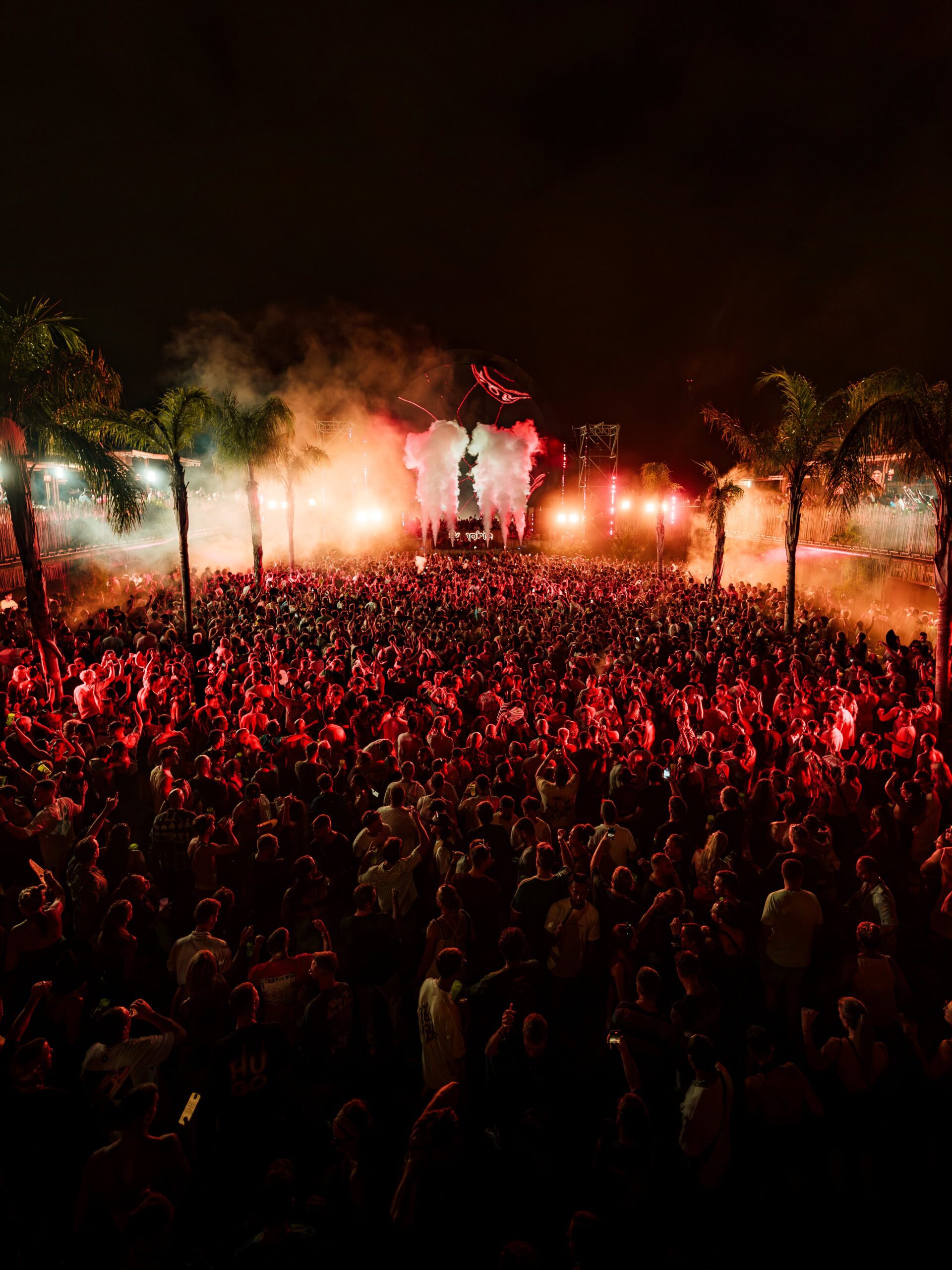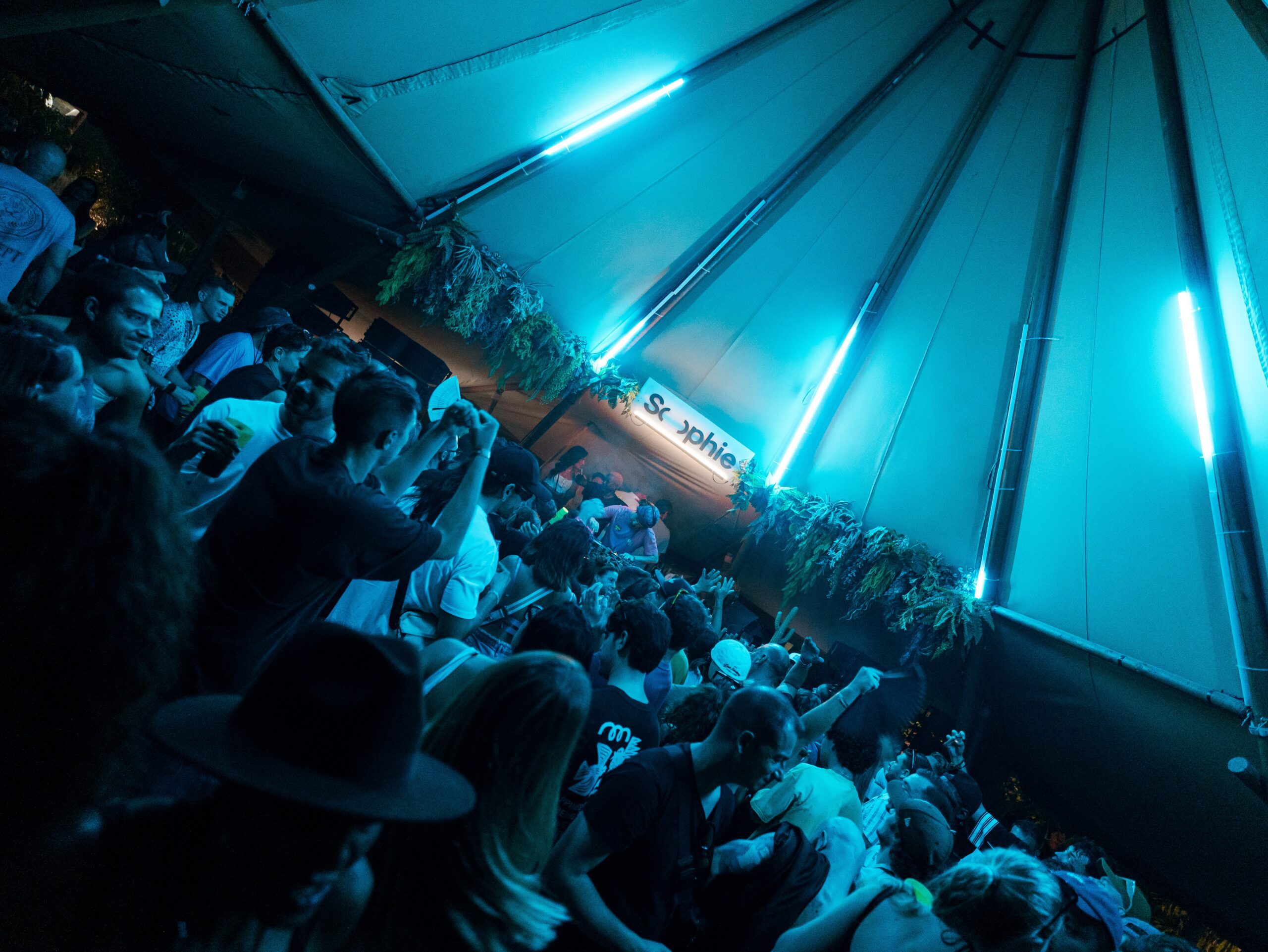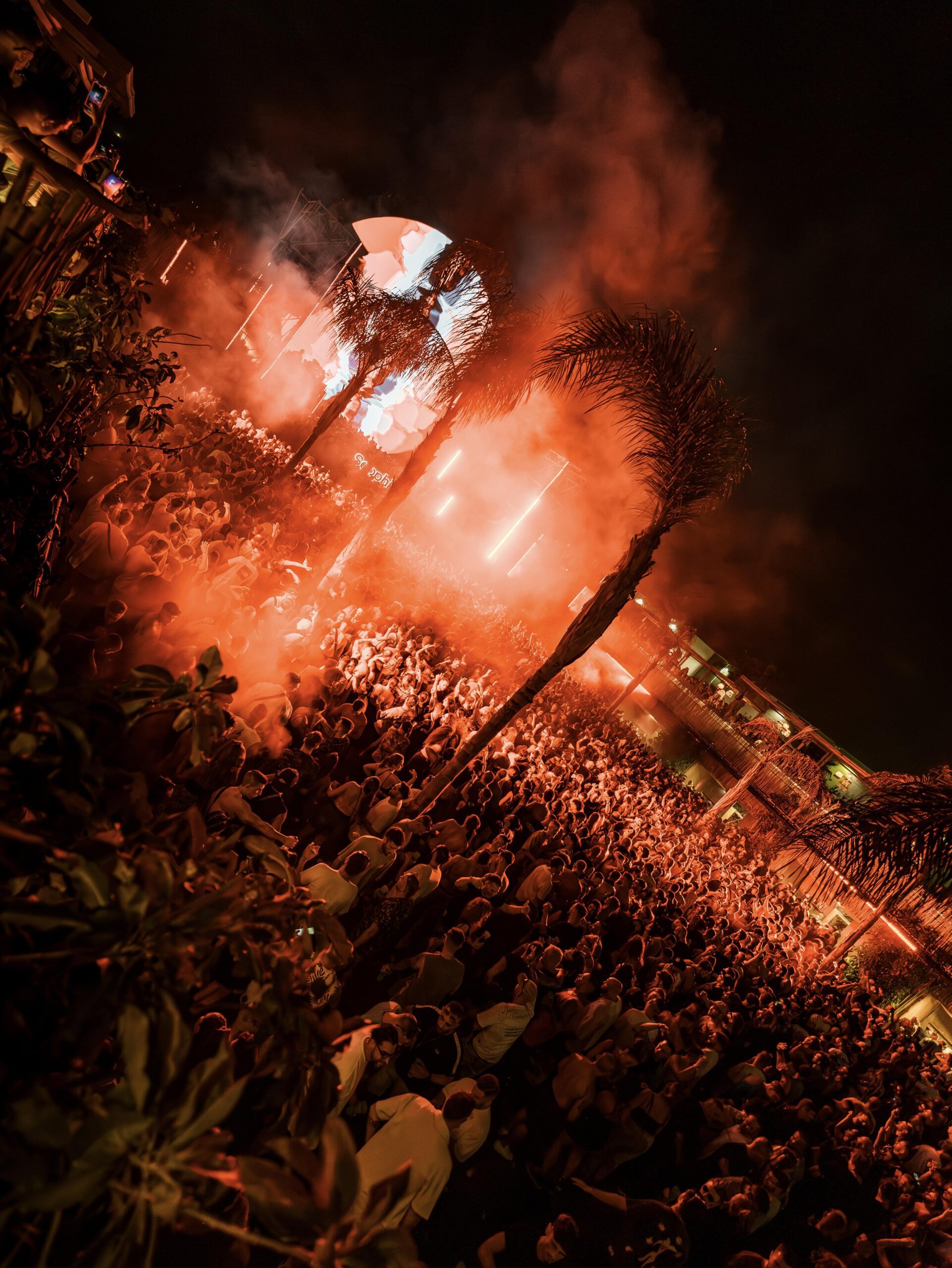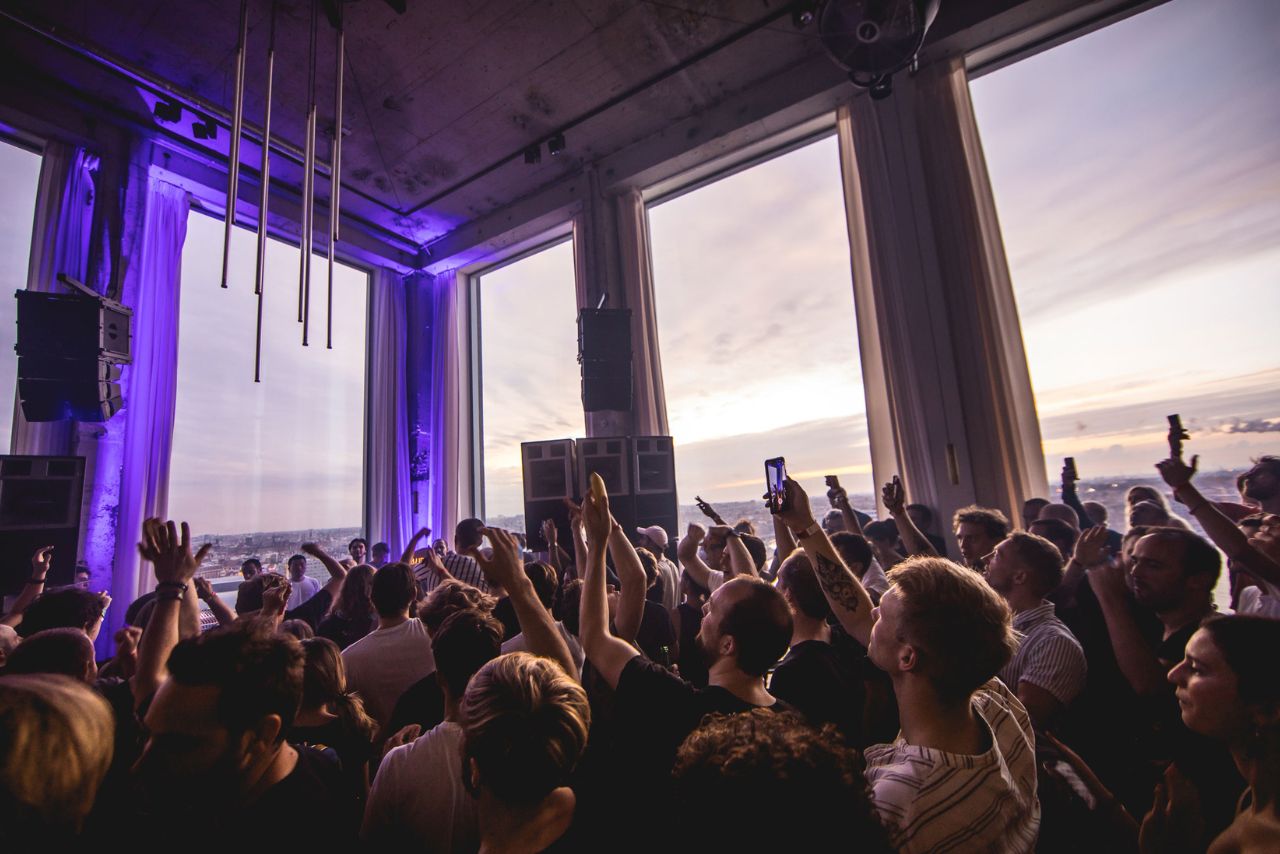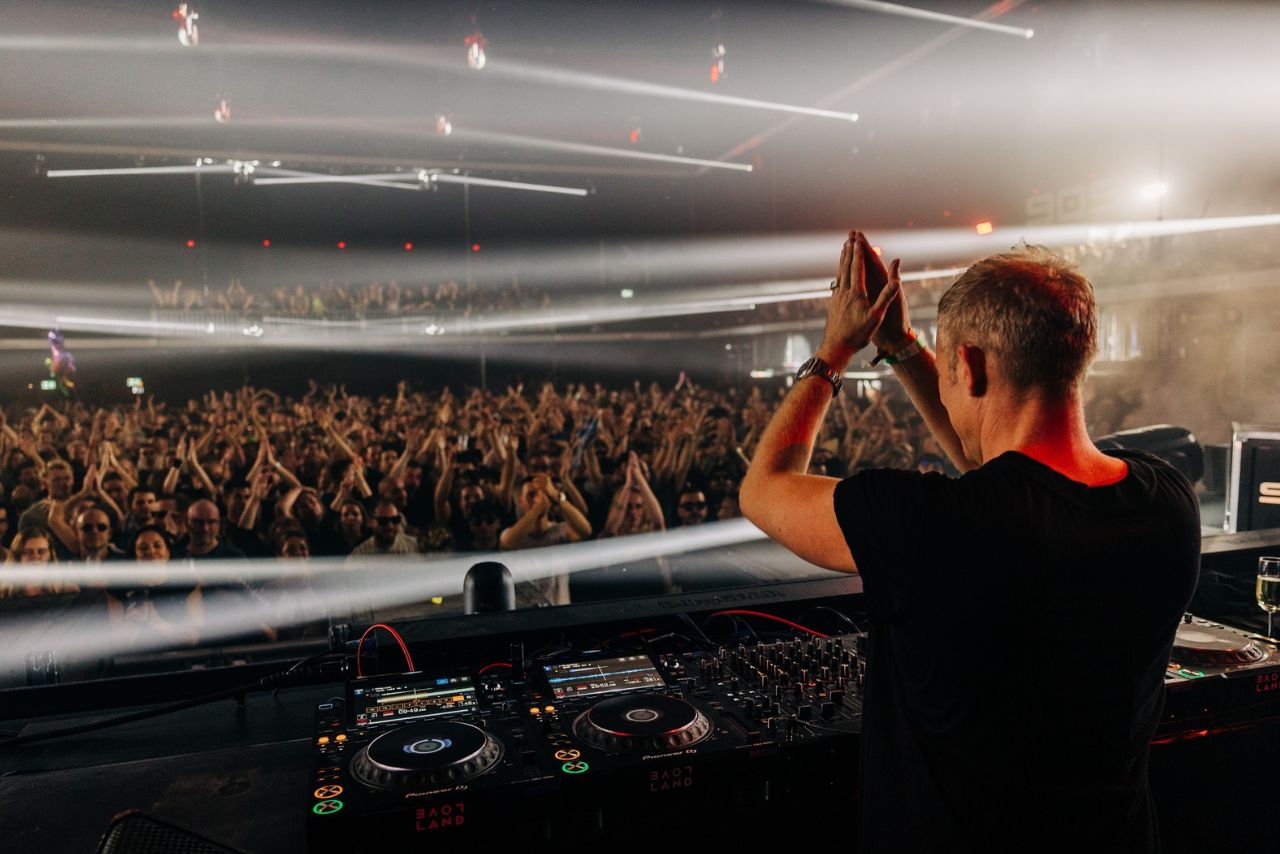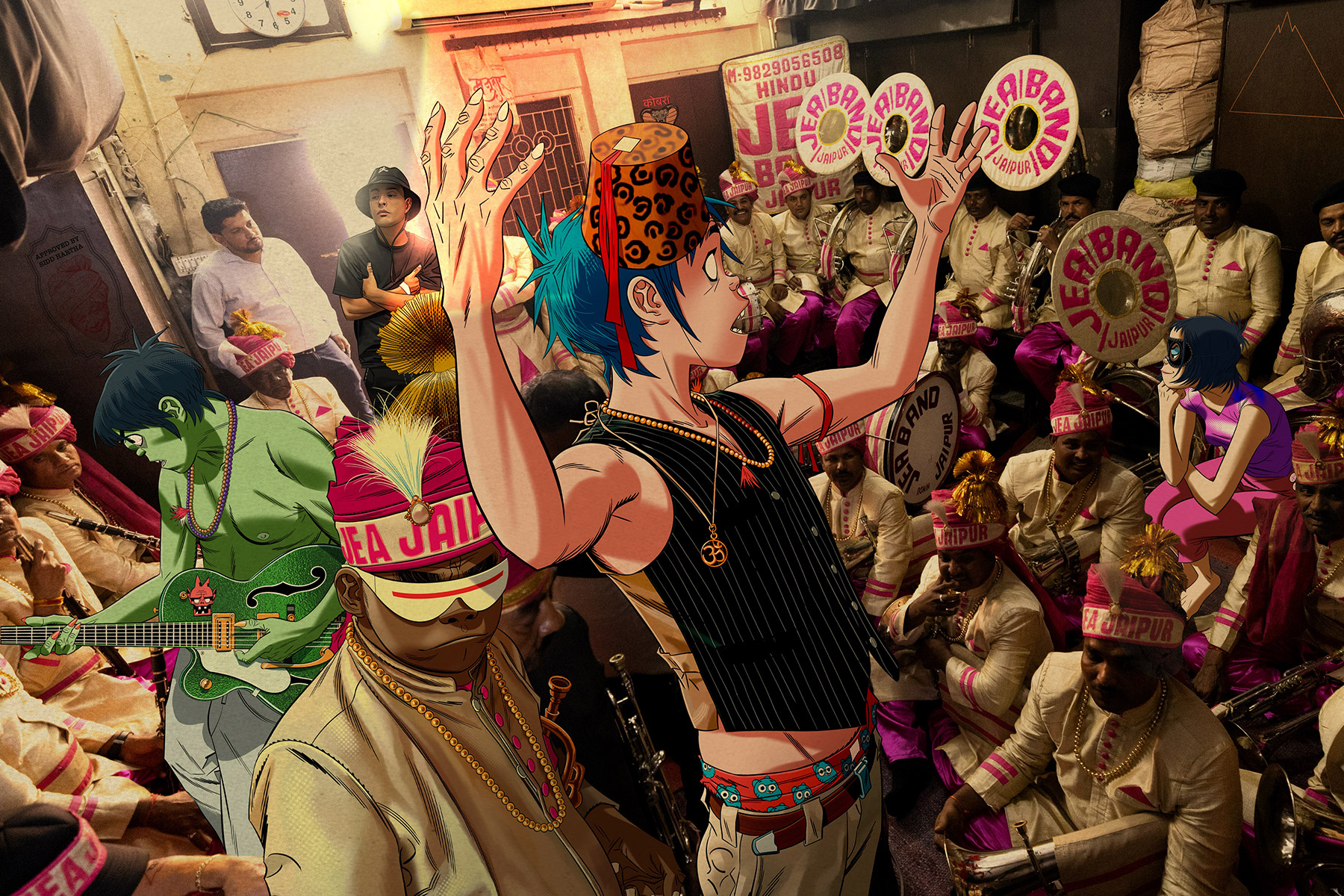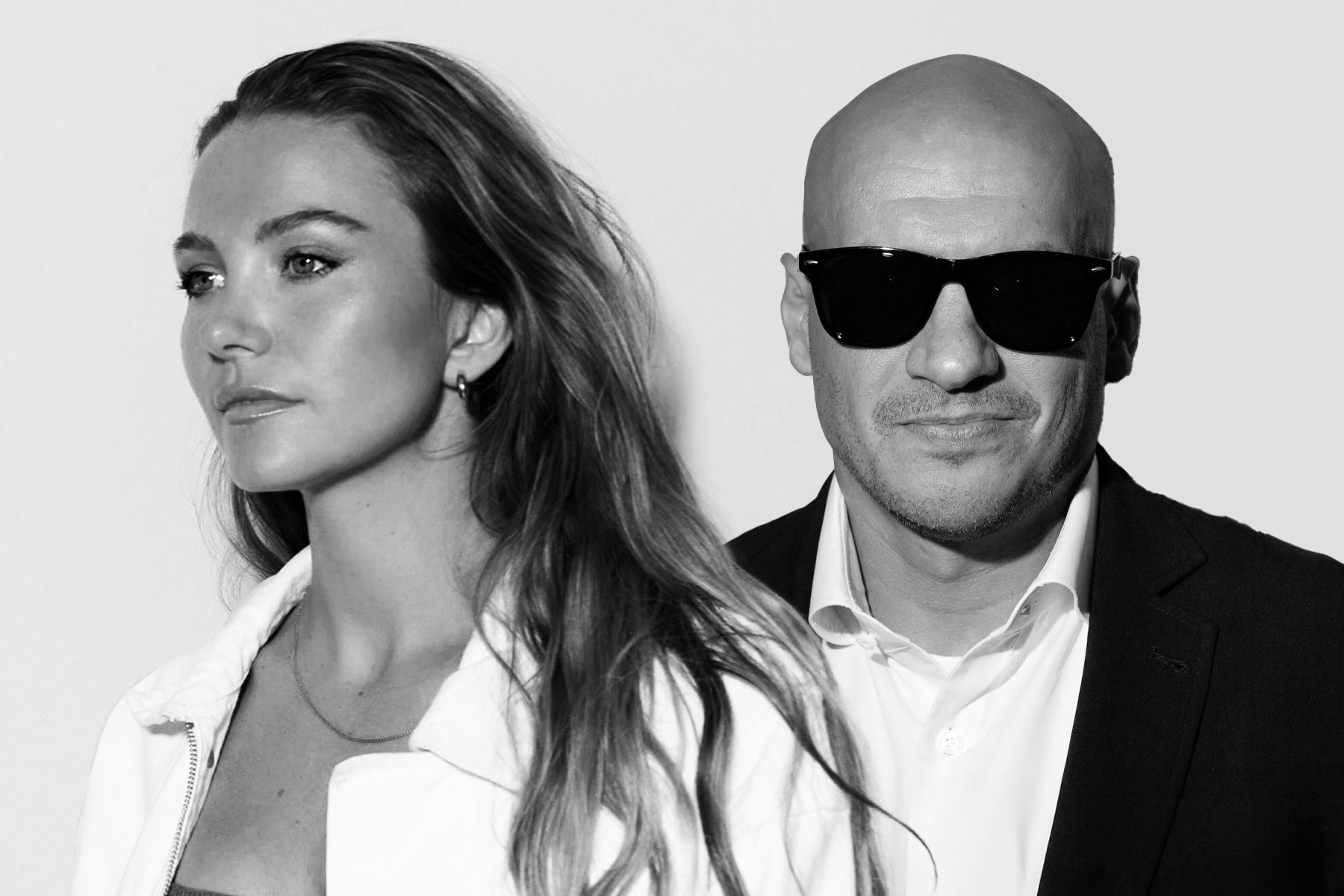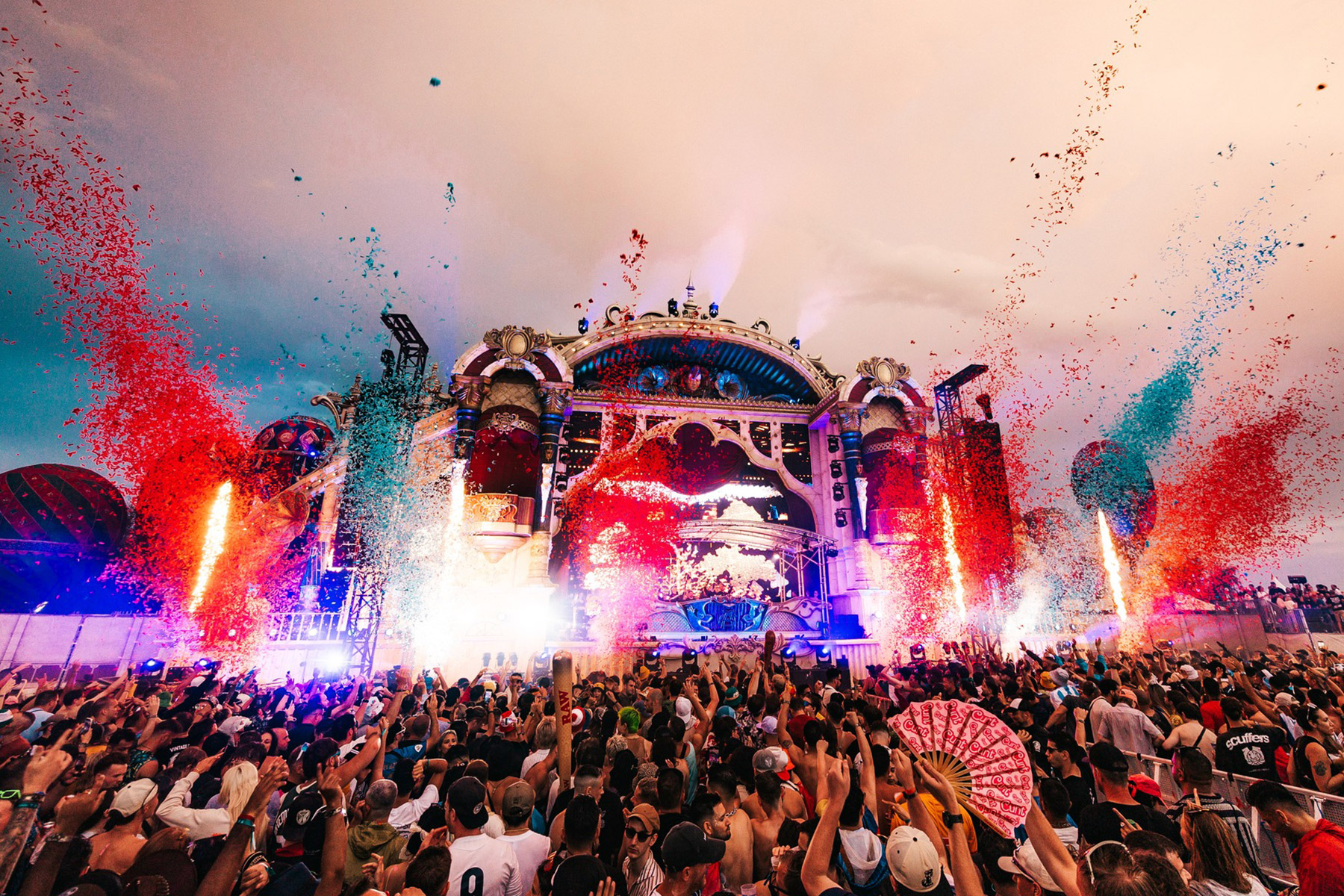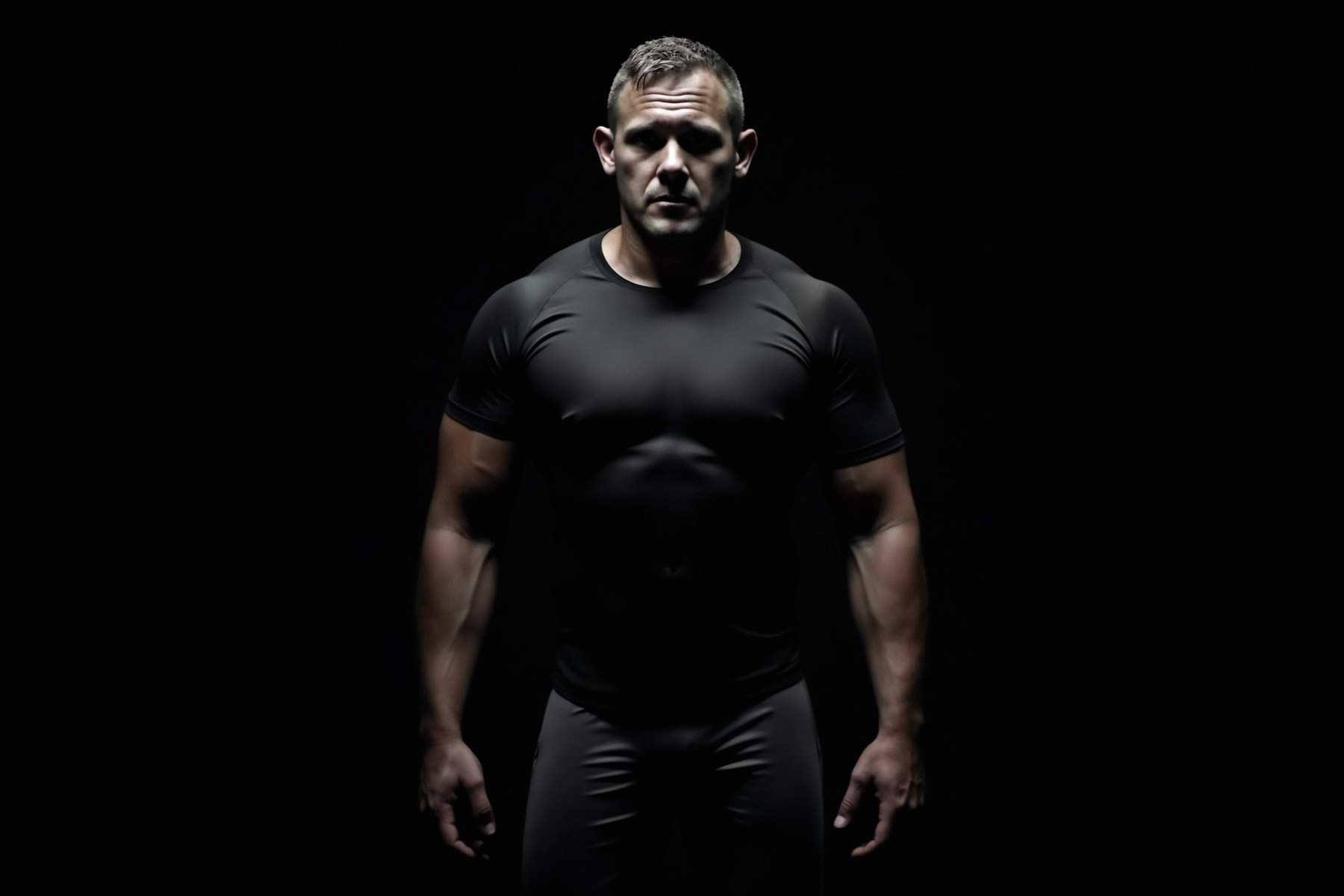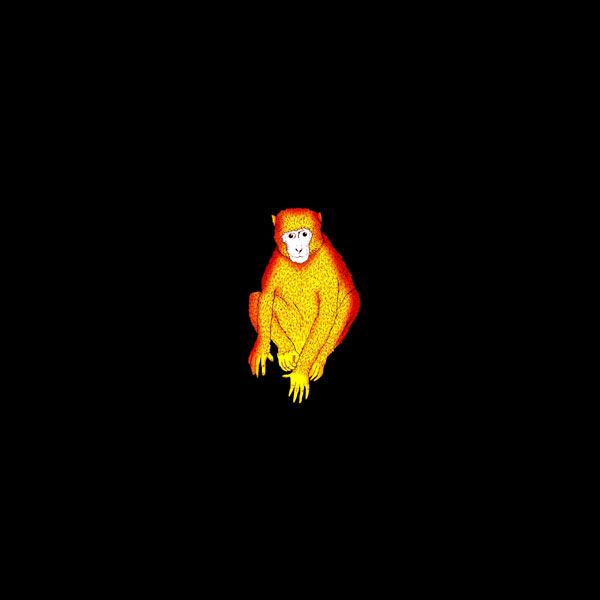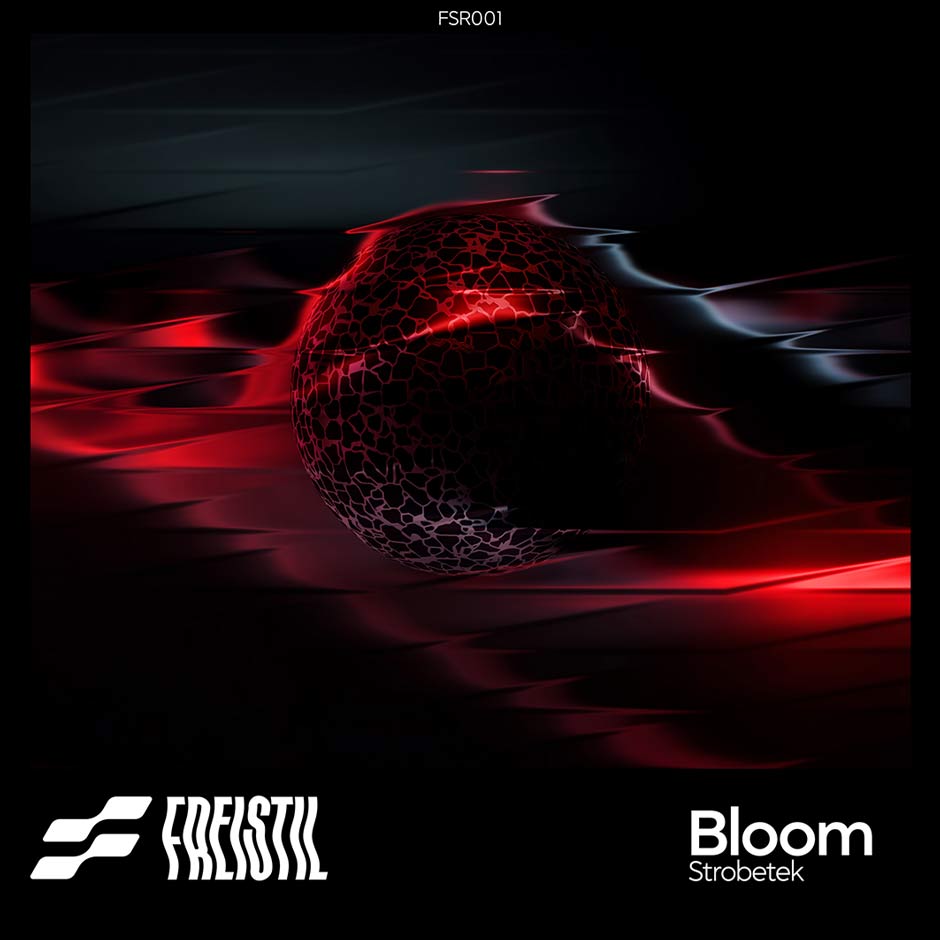Recently, I had the chance to be at the Sophie Festival in Malaga, which was celebrated at the surprising venue in Ogus Park. This was already the fifth date of the season in what has become a very ambitious journey: a series of six events running from June until September, each one almost completely sold out. For a festival that only began a few years back, its growth has been remarkable. In just a few short years, Sophie has shown a clear direction and a very promising future—thanks to its ability to spot trends, curate forward-thinking lineups, and attract world-class DJs to its stages.
Over the summer, Sophie has welcomed names like Solomun, Charlotte de Witte, Ricardo Villalobos, Richie Hawtin, ANOTR, Nina Kraviz, and more—a lineup that shows both range and quality. It’s this combination of ambition and execution that has quickly placed the event series among the most respected electronic music gatherings in southern Europe.
Malagas’s Ogus Park itself perfectly captures Sophie’s motto: “a space to grow and blossom, where music finds its echo in nature.” It feels intimate yet expansive, a place where music and the natural surroundings merge seamlessly. This year, new touches like a cocktail bar and a vinyl shop added character and gave festival-goers the chance to enjoy much more than just the music.
That night, the main stage belonged to Chris Stussy and Marco Carola, each delivering a three-hour set that kept the energy flowing. Stussy, from 8 pm to 11 pm, delivered a refined journey through minimal house, subtle yet powerful, setting a high bar for what was to come. Then Marco Carola took over, effortlessly tuning in to the crowd and the atmosphere. With a blend of vocal hooks and rolling basslines, he kept everyone moving until the end. When the music stopped at 2 am, it almost felt unfair—we could have danced until sunrise.
But what struck me most during the night was the Garden Stage, characterised by El Tipi (the stage – a tent). Opened earlier this year in April, it has quickly become one of the most special corners of Sophie. With grass underfoot, sofas scattered around, and a chill vibe in the air, it’s an intimate refuge within the festival. On this occasion, the stage was curated by Yoyaku, the Parisian collective founded in 2015 as a record store and now a driving force in reshaping minimal sounds. The lineup included Karla Böhm, Hostom, one of the founders, alongside Paramida from Panorama Bar in Berlin, Tomas Station, resident of Circoloco, and the legendary Magda. The atmosphere was magical—small, cozy, with a crowd that felt connected to every track and every person around. For me, the highlight was Tomas Station closing his set with Donna Summer’s timeless “I Feel Love.” His energy was contagious, his smile and moves pulling everyone in—it was one of those moments you don’t forget.
What makes Sophie stand out is not just the music but the way it’s all put together. Everything feels well thought out: the limit on tickets ensures you never feel crushed, yet the dancefloor always has energy. The venue is clean, stylish, and beautifully organized, giving the impression that the festival truly values the experience of its audience over sheer numbers. That’s probably why tickets for every edition have flown so quickly—it’s a formula that works.
As the season comes to a close with the final date on September 13th, I can only encourage anyone who hasn’t yet been to make the trip. It’s more than just a festival—it’s a meeting point for music, nature, and people who want to connect through sound. For such a young project, Sophie has already built a reputation that many long-standing festivals would envy, and if this progression continues, its future looks incredibly bright. I know I’ll be back, and I do not doubt that it will keep growing into something even more special in the years to come.
With Andalusian love,
Andrea Mendez


